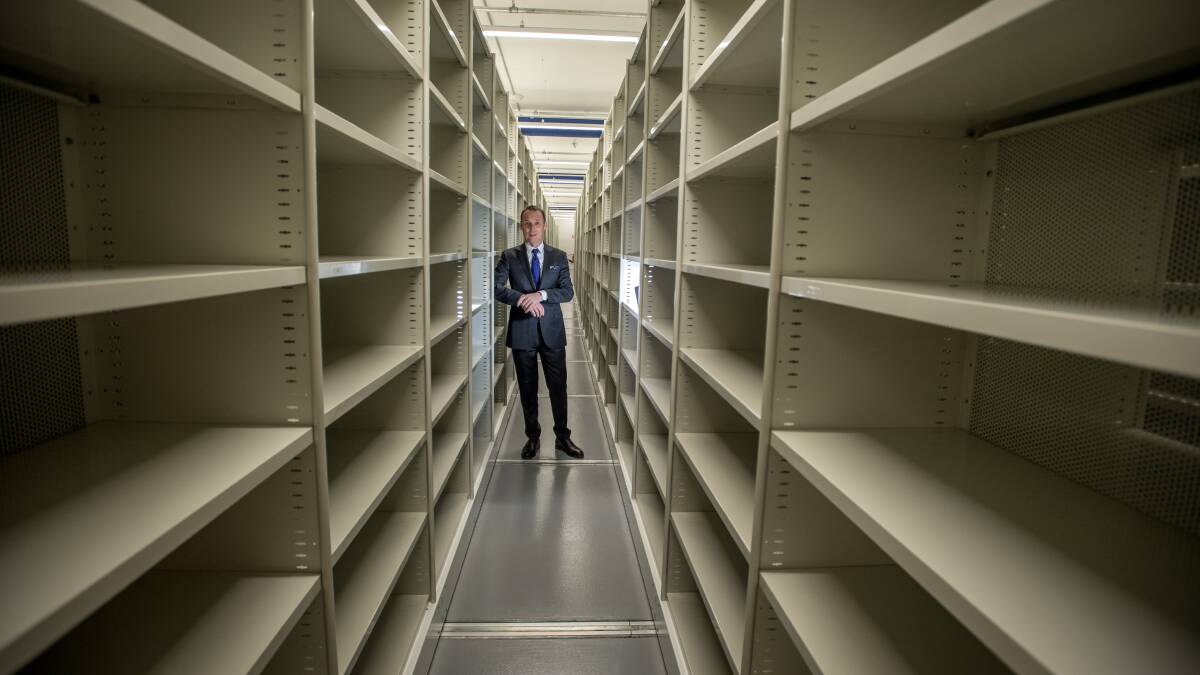Fidel Castro gave Cuban cigars. The Pope gave a pen. A middle eastern leader gave a Rolex watch (there has been quite a lot of bling from that region as gifts to Australian prime ministers).
Subscribe now for unlimited access.
or signup to continue reading

From Fiji: a more humble (and more useful?) throwing club. The Vietnamese leader also gave a useful gift: coffee beans.
Julia Gillard got the beans. Who got the cigars isn't completely clear. The Cuban despot was free with his national product to other leaders. Malcolm Turnbull got a box. It was also reported that Barnaby Joyce received one - though his won't be heading to the Canberra's archive since he's never been prime minister.
You may wonder where they all end up. The answer is that gifts to Australian prime ministers over the decades are about to move to a state-of-the art facility being constructed in Canberra for the National Archives of Australia.
The empty vault of a building in Mitchell is a $40 million upgrade of an old storage depot. The finished work has just been inspected by the director general of the National Archives before it's formally handed over by the builders.
When it is, its 75 kilometres of currently empty shelves will be packed with official papers, video and audio tapes - 73 kilometres for papers and two kilometres for the tapes and other paraphernalia like the gifts handed to prime ministers.
"Here is where we keep the memory of the nation of Australia," the archive's director-general, David Fricker, said.
"We have really interesting things in that collection - a box of cigars from Fidel Castro. From the Vatican, we have a very special pen that was presented by the Pope to the Prime Minister."
"We have very high end jewellery from Middle Eastern leaders that have wanted to present something quite precious and memorable to Australia as well as very simple handcrafted gifts by some perhaps African nations."
Here we have records of government, records of people's war and military service. We have records of people's immigration journey to Australia.
- Director-General of the National Archives of Australia, David Fricker
He said that all the gifts were "gestures of respect; all of them gestures of affection and all of them of historical importance."
Some of the gifts are valuable in pure cash terms, particularly watches and jewellery from the rules of the Middle East. Others have value just because they were given by one leader to another. For these, part of the archive will be a secure, temperature and humidity controlled vault. Secure in this context means not just safe against theft but safe against natural attack, say by mould.
It will also be the place for those personal portraits which loyal subjects do of those they revere.
And, perhaps most important but least glamorous, the documents which define Australian history - the official papers currently scattered around 180 government ministries and agencies and which researchers will seize on as the primary evidence as they try to write the national story.
"Here we have records of government, records of people's war and military service. We have records of people's immigration journey to Australia." said Mr Fricker.
"We have the histories of indigenous Australians and their part in the history of Australia and the way they were treated by successive governments."
Even though the present and future is digital, the great bulk of official European Australia's past has been on paper. Some of that is being digitised but the work is expensive. The expectation is that the archive will keep taking paper until 2031.


